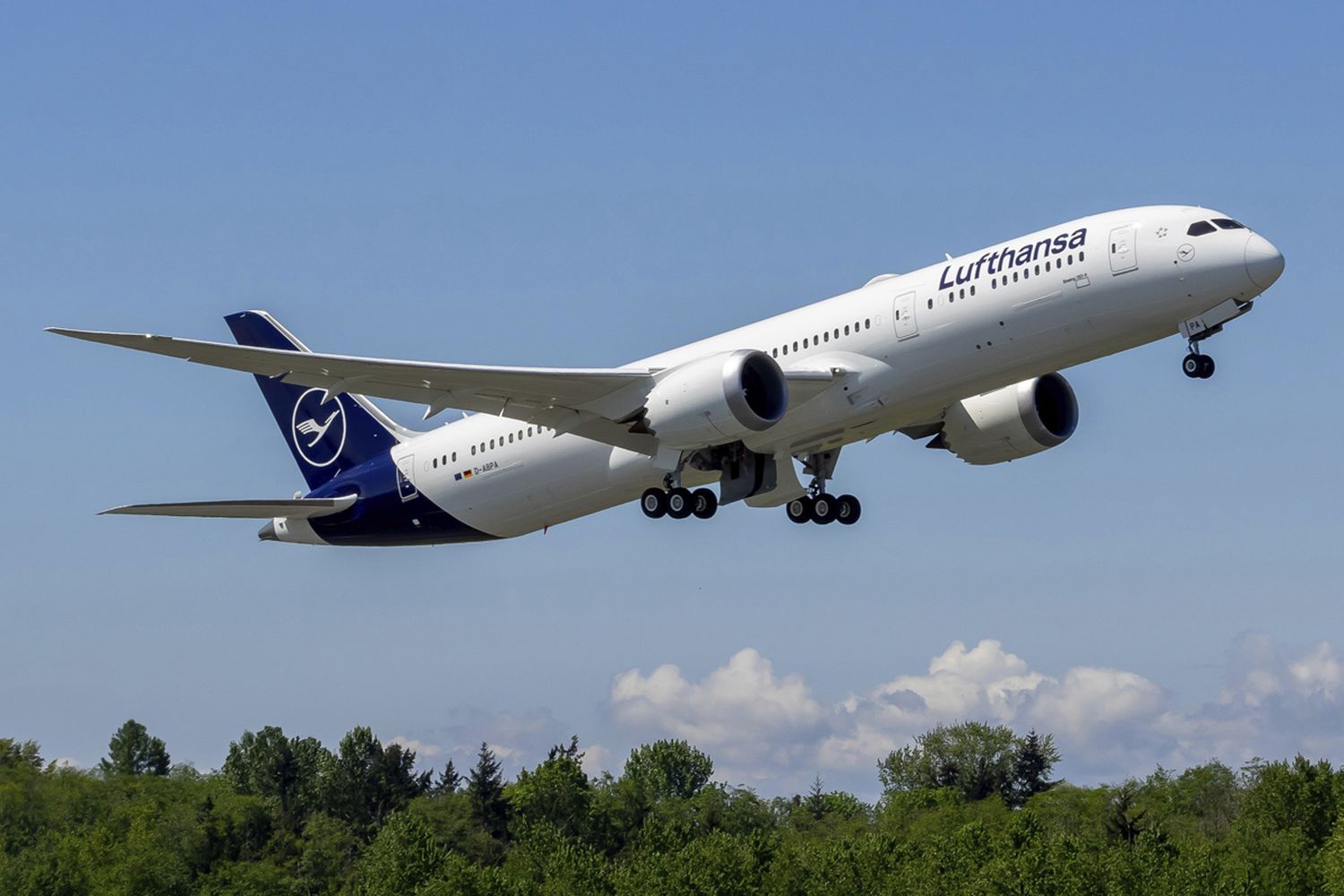Lufthansa would register new Boeing 787s in Switzerland to avoid Trump’s tariffs
The decision is being considered as a way to circumvent the dispute between the United States and the European Union.
Lufthansa is considering registering its highly anticipated Boeing 787 Dreamliner aircraft in Switzerland as a way to circumvent the ongoing tariff dispute between the United States and the European Union.
The move comes amid difficulties the German airline faces in importing aircraft directly to Germany due to retaliatory tariffs imposed during the trade conflict that began under former U.S. President Donald Trump.
According to aeroTELEGRAPH, Lufthansa—awaiting the arrival of its new Dreamliners—should have already received some of the 15 Boeing 787-9s it has on order, as reported by our partner outlet, Aeroin.
These aircraft, currently stored in Charleston, South Carolina, have not yet been delivered due to delays in certifying the newly acquired seats Lufthansa plans to install. Despite this, the airline had initially intended to deploy the planes on medium-haul routes starting in the European summer.
However, the potential imposition of tariffs of up to 200% on aircraft entering the European Union has forced the group to reconsider its logistical strategy. Switzerland, which is not an EU member and has not imposed retaliatory tariffs on the U.S., has emerged as a strategic alternative. By initially registering the aircraft in Switzerland, the group could significantly cut down on import costs.
This strategy would leverage the multinational structure of the Lufthansa Group, which already operates in various countries and holds stakes in non-German airlines such as ITA Airways, and potentially Air Europa and TAP. The group's legal and geographical diversity may thus become an operational advantage in times of trade uncertainty.
Lufthansa has not officially confirmed whether it will adopt the Swiss registration route, but German media reports that the option is under serious internal review. If viable, the Dreamliners could later be re-registered in Germany once integrated into the active fleet.
This scenario highlights how the global nature of commercial aviation demands not only efficient logistics but also geopolitical and legal agility to maintain competitiveness.


Comentarios
Para comentar, debés estar registrado
Por favor, iniciá sesión